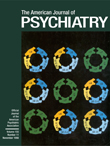To the Editor: Among men with AIDS, rates of suicides up to 66 times higher than in the general population have been reported
(1–4). Relative risks for suicidal ideation and attempts among seropositive men also are high
(5, 6). Suicidality in this population is related to younger age, later stage of HIV disease, more physical symptoms, higher levels of depression, and less social support
(4, 6, 7).
Because suicide attempts are three times higher among women than among men in the general population
(8), we would expect even higher suicidality among seropositive women than among seropositive men. However, the limited published data suggest otherwise. Among 43 women in the Air Force, none reported suicide attempts, gestures, or plans since testing seropositive
(9). Among 55 pregnant women with HIV at an outpatient obstetric clinic, 9% had attempted suicide at some point in their lives
(10).
In addition to relative risk of suicide, it is important to know if an HIV diagnosis among women acts as an “inducer” or “accelerator” of suicide attempts. That is, does the seropositive diagnosis lead directly to suicide attempts, or are attempters at risk on the basis of their pre-HIV history
(2)? In support of the accelerator argument, most suicide attempts among the HIV-infected occur among those with a psychiatric history, previous attempted suicides, or drug dependence
(1).We surveyed 230 seropositive women from New York City. Their median age was 39.3 years, 83% were Latina or African American, and 44% were high school graduates. Time since testing positive varied from 3 months to 15 years (median=4.3 years), and 24% reported an AIDS diagnosis. Sixty-six percent reported heavy crack or injection drug use at some point in their lives; 19% had used drugs in the last month. In response to two yes-or-no items, the women indicated if they had tried to end their own lives at any time before their HIV diagnosis and at any time since.
Results indicated that 26% of the total group had attempted suicide before their HIV diagnosis; 19% had done so since. Although 58% of those who attempted suicide after the diagnosis had attempted before as well (supporting the accelerator position), the rest, who first attempted suicide some time after their diagnosis, raise potential support for the inducer theory. Consistent with findings among seropositive men, women who had attempted suicide after their HIV diagnosis (compared with those who had not) were younger (t=3.47, p<0.05) and reported more disease symptoms (t=–2.35, p<0.05); depression (t=–2.67, p<0.001), loneliness (t=–3.12, p<0.005), and need for support (t=–3.46, p<0.005). Lifetime and current drug use were not significant correlates, but Latina women were more likely than others (26% versus 13%) to have attempted suicide after their HIV diagnosis (c2=5.80, p<0.05).
Our findings highlight the heretofore unreported high risk of suicide attempts among seropositive women. Of course, the risk is probably multiply determined in this poor, inner city sample. Additional data with adequate controls and more detailed assessment are needed to further explore the inducer versus accelerator debate and to refine the profile of seropositive women most at risk for suicide attempts.

